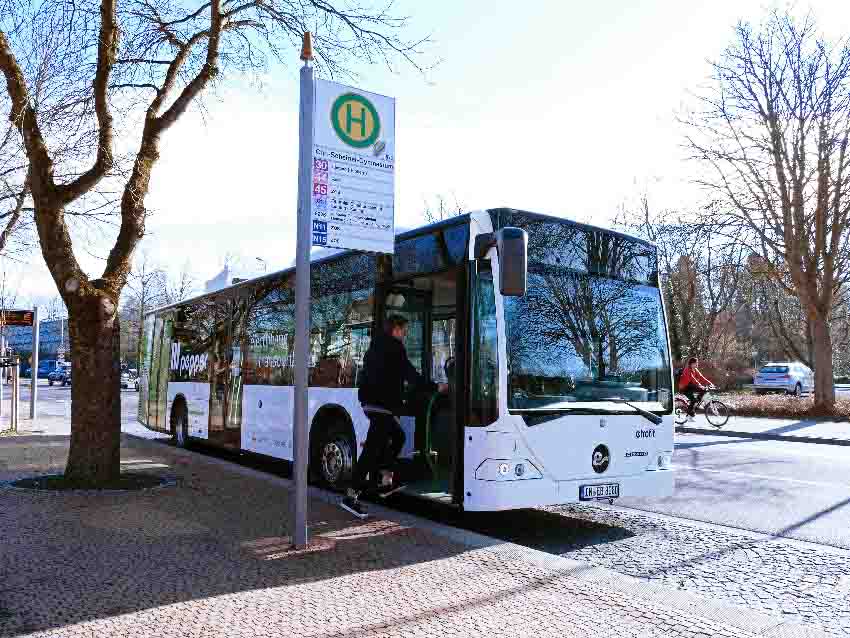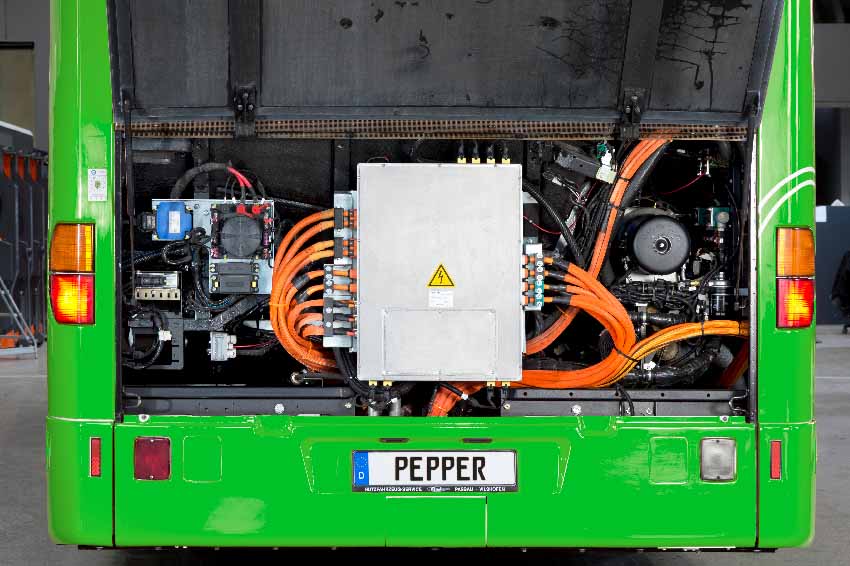pepper motion offers innovative solutions for the electrification (repowering) of used and new commercial vehicles. With its holistic approach to telematics, charging infrastructure, and fleet management, the company designs quickly implementable and cost-efficient solution packages for a sustainable mobility transformation.
With headquarters in Denkendorf and offices in Garching near Munich and Paderborn, pepper employs more than 100 people. The subsidiary pepper motion Austria GmbH, based in Vienna, is the pepper Group’s software development center. pepper is represented with further sales partners in Italy, France, and Poland.
Interview with Patrick Galster, Marketing & PR Specialist at pepper motion GmbH.
Easy Engineering: What are the main areas of activity of the company?
Patrick Galster: By repowering existing commercial vehicles with certified etrofit kits for buses and trucks, vehicles are given an environmentally friendly “second life” and therefore enable the most sustainable form of mobility, both ecologically and economically, making an active contribution to reducing emissions in transport and implementing the Clean Vehicles Directive.
The award-winning, production-ready etrofit electrification kit is currently being offered as a battery electric drive system for vehicles such as the Mercedes-Benz Actros MP3 and Mercedes Benz Citaro C1. Further models can be developed on request.
pepper’s innovative modular drive system is entirely compatible with all technologies, as shown by an ongoing H2 research and development project for a next-generation fuel cell drive system. The first vehicles with a fuel cell powertrain in series quality should be in use on the roads by 2024.

pepper is offering its electrification kits also as a Tier 1 solution to OEM and producers of specialist vehicles. The highly efficient modular kits can be flexibly integrated into newly developed vehicles or existing vehicle series and enable vehicle manufacturers to offer their customers proprietary zero-emission new vehicles without high development costs.
E.E: What’s the news about new products?
P.G: Recently pepper also offers solutions around the vehicles. The pepper ecosystem is the holistic solution to transform the diesel economy into the electric mobility era: With customized solutions for the provision of green energy at competitive prices, necessary charging infrastructure and load management, vehicles, services and additional trainings or sustainability reports – all bundled in a subscription model with a fixed price per kilometer over contract term. It is a modular system – You can have the fleet fully operated as a package or, depending on needs, use only individual modules of the ecosystem.
E.E: At what stage is the market where you are currently active?
P.G: Demand in the market for zero-emission vehicles is steadily increasing. With our products we currently aim at bus operators and hauling companies that have an interest in e-mobility and to electrify their fleet. Also, instead of buying new there is a growing awareness for the option of converting existing vehicles. In our opinion – and the numbers support this – this will be the only way of reaching the climate goals as there are not enough new vehicles available.

E.E: What can you tell us about market trends?
P.G: The current trends in the commercial vehicle market lean towards pure electric vehicles for inner city and short distance transport and hydrogen electric drivetrains for longer distances. At pepper we deliver solutions using both technologies.
New vehicles become affordable and slowly enter the market. Nevertheless, the existing and planned number of new vehicles is much too small, so retrofitting is indispensable to reach climate goals.
E.E: What estimations do you have for 2023?
P.G: Climate goals and initiatives like the Clean Vehicles Directive let the pressure grow for companies to turn their fleet emission free. Each year the number of new vehicles available will increase, but still the vast demand for green vehicles cannot be reached without retrofitting and repowering existing commercial vehicles. So, we expect a high demand for retrofitting as well as for Tier 1-kits in 2023.

